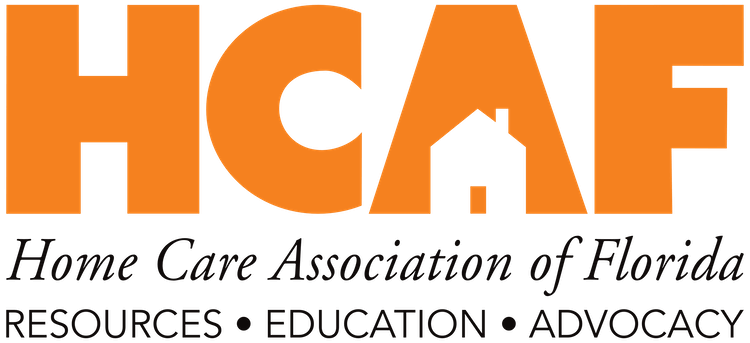HCAF Joins National Alliance in Calling for Deregulation to Support Home Care Providers

HCAF Joins National Alliance in Calling for Deregulation to Support Home Care Providers
The Home Care Association of Florida (HCAF) proudly joined 47 fellow state associations — including the Florida Hospice & Palliative Care Association — and the National Alliance for Care at Home in submitting a unified response to the Trump Administration’s Request for Information (RFI) on federal deregulation. Submitted to the Office of Management and Budget (OMB) on May 12, 2025, the coalition’s letter outlines numerous recommendations to eliminate outdated, duplicative, and burdensome regulations that obstruct the delivery of high-quality, home-based care.
Prompted by OMB’s April 11 call for public input, this coordinated national effort aimed to shape more supportive, modern regulatory policy. Recognizing the importance of this opportunity, HCAF issued a statewide call to action, asking Florida’s home care providers to share how federal rules affect their ability to deliver care, grow their agencies, and recruit or retain staff.
We invited input from providers across all lines of business — Medicare-certified, Medicaid, and licensed-only — on regulatory challenges involving agencies such as the Centers for Medicare & Medicaid Services (CMS), the Department of Labor (DOL), and the Occupational Safety and Health Administration (OSHA). Thanks to the valuable feedback received, Florida’s unique concerns were incorporated into the final set of recommendations submitted through the Alliance.
This initiative reinforces HCAF’s ongoing commitment to advancing practical policy solutions that reduce administrative burden and improve access to care in the home.
Key Recommendations for Regulatory Relief
Among the home health-specific proposals supported by the coalition are:
- Modernizing the Face-to-Face (F2F) Encounter Rule: CMS has not fully implemented provisions of the CARES Act that permit nurse practitioners and other non-physician practitioners (NPPs) to conduct F2F encounters and certify Medicare home health services independently in accordance with state law. The coalition calls for aligning CMS regulations with federal statute to expand access and reduce delays in care.
- Rescinding OASIS Reporting for Non-Medicare Patients: The requirement that home health agencies report Outcome and Assessment Information Set (OASIS) data for all patients, regardless of payer source, is an unfunded mandate that imposes significant financial and operational burdens. The coalition urges CMS to limit OASIS reporting to Medicare and Medicaid beneficiaries.
- Allowing Therapists to Perform Initial Assessments: The coalition recommends permanently adopting pandemic-era flexibilities that allowed physical, occupational, and speech therapists to conduct initial and comprehensive assessments when therapy is the primary service ordered.
- Eliminating the “Acceptance to Service” Rule: CMS’s new policy requiring agencies to publicly post caseload, staffing, and service limitations adds administrative burden without solving the root causes of access challenges — namely, workforce shortages and inadequate reimbursement.
- Reforming Home Health Aide Supervision Requirements: Current federal rules require direct observation of each home health aide with every individual patient every six months, which is logistically and financially burdensome. The coalition recommends reverting to the original, more flexible supervision standards.
- Standardizing Medical Review Audits: The coalition calls for CMS to adopt consistent audit standards across contractors, curb excessive denials, and increase transparency and accountability in medical review processes that unfairly target ethical providers.
Why This Matters
Regulatory burdens remain one of the top concerns voiced by home care providers in Florida and across the country. When rules are misaligned with real-world practice, the result is more time spent on paperwork and compliance — and less time available to deliver care. These proposed changes would help modernize federal oversight to better reflect today’s health care environment, reduce administrative waste, and allow providers to reinvest in patient care and workforce development.
HCAF will continue to partner with national organizations, state associations, and federal agencies to advocate for practical, provider-informed policies that support high-quality care in the home.
To read the full comment letter submitted to OMB, click here.
